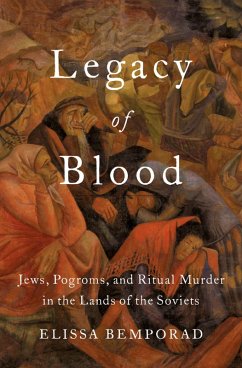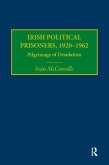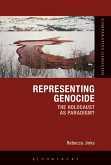This book traces the legacies of the two most extreme manifestations of tsarist antisemitism-pogroms and blood libels-in the Soviet Union, from 1917 to the early 1960s. Closely intertwined in history and memory, pogroms and blood libels were and are considered central to the Jewish experience in late Tsarist Russia, the only country on earth with large scale anti-Jewish violence in the early twentieth century. But their persistence and memory under the Bolsheviks-a chapter that is largely overlooked by the existing scholarship-significantly shaped the Soviet Jewish experience. By exploring the phenomenon and the memory of pogroms and blood libels in the Soviet territories of the interwar period as well as, after World War II, in the newly annexed territories, Bemporad studies the social realities of everyday antisemitism through the emergence of communities of violence and memories of violence. The fifty-year-span from the Bolshevik Revolution to the early years of Krushchev included a living generation of Jews, and non-Jews alike, who remembered the Beilis Affair, the pogroms of the civil war and in some cases even the violence of the prerevolutionary years. Bemporad also examines the ways in which Jews reacted to and remembered the unprecedented violence of the pogroms of the Russian Civil War, and how they responded to and which strategies they adopted to confront accusations of ritual murder. By tracing the "afterlife" of pogroms and blood libels in the USSR,
Legacy of Blood sheds light on the broader question of the changing position of Jews in Soviet society. And by doing so it tells the story of the solid yet ever changing and at times ambivalent relationship between the Soviet state and the Jewish minority group.
Dieser Download kann aus rechtlichen Gründen nur mit Rechnungsadresse in A, B, BG, CY, CZ, D, DK, EW, E, FIN, F, GR, HR, H, IRL, I, LT, L, LR, M, NL, PL, P, R, S, SLO, SK ausgeliefert werden.









